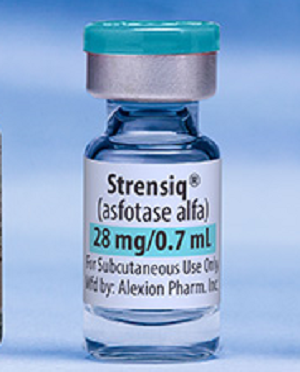Handok's Strensiq (ingredient: asfotase alfa), a medicine for childhood hypophosphatasia, will receive insurance, according to the decision of the Pharmaceutical Benefits Committee under the National Health Insurance Service on Thursday.
The Ministry of Food and Drug Safety gave the go-ahead to Strensiq on Feb. 12, 2016, as a long-term enzyme replacement treatment for bone symptoms of childhood hypophosphatemia.

A genetic mutation that produces an enzyme called tissue-nonspecific alkaline phosphatase (TNSALP) causes hypophosphatasia. As the childhood hypophosphatemia develops, walking development slows down, musculoskeletal stiffens or causes pain, and muscular strength weakens.
According to clinical trials, injecting Strensiq in early childhood or infancy increased the survival rate of childhood hypophosphatemia patients significantly compared to the control group. The estimated survival rate was 97 percent in the Strensiq group and 42 percent in the control group at the 48th week. Side effects included injection site reactions, lipodystrophy, and phosphorus calcification.
The final evaluation result may be changed if there are changes in coverage range, licensing, or cancellation in Strensiq, according to the rules on the criteria for the medical care benefits at the National Health Insurance Service.

